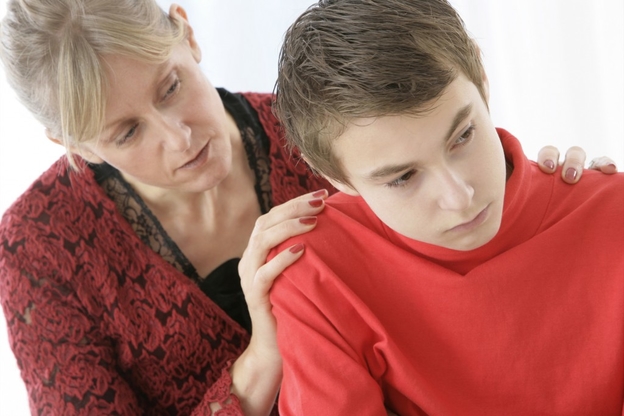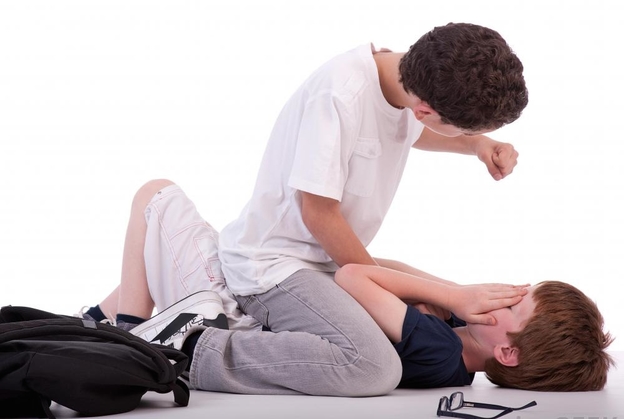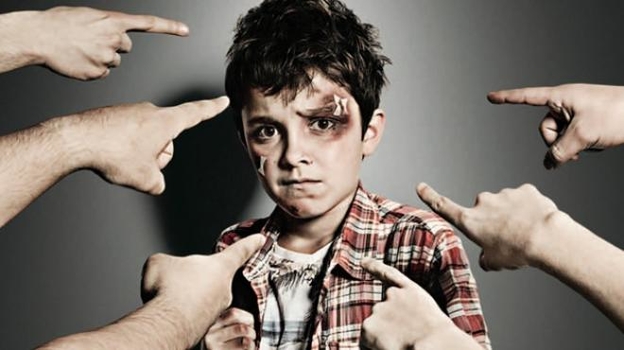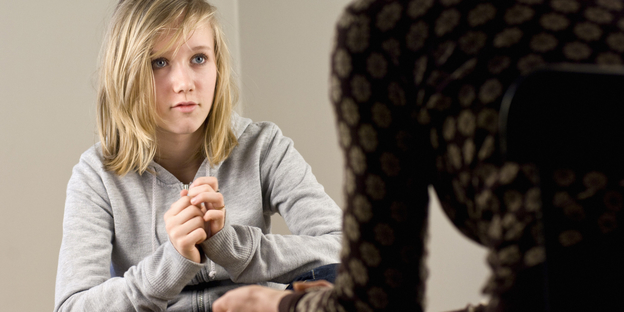SingaporeMotherhood | Parenting
November 2015
Help Your Child Cope with Bullying
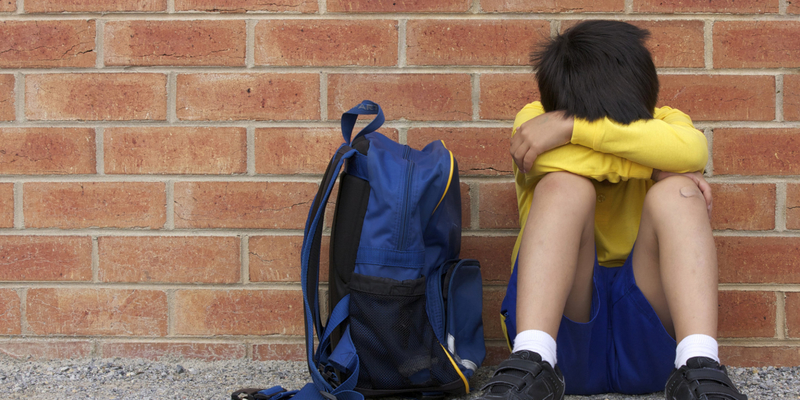
We have all probably heard of the notion that one who is a bully is indeed a coward. But is putting across this universally acknowledged truth to a child who is a victim of bullying enough to console him or her? As adults, we of course understand that it is never the fault of the victim, but how do we get a child to comprehend this? Bullying can result in several negative outcomes, ranging from developing low self-esteem to poor performance in academics and other school activities. In worst case scenarios, it can even lead to psychological conditions such as depression.
[banner][/banner]
Dr. Ong Say How, Senior Consultant & Chief, and Ms. Ong Kim Siew, Nurse Clinician at the Department of Child & Adolescent Psychiatry at the Institute of Mental Health (IMH), share with us how parents can tackle bullying.
Signs of Your Child Being Bullied
What are some warning signs which parents should be looking out for in their children which can indicate that they are victims of bullying at school?
- being afraid to go to school with continuous school absences and declining grades
- unexplainable injuries like bruises and cuts
- lost or destroyed clothing and/or belongings
- withdrawing from family or friends and wanting to be left alone
- emotional changes such as being more irritable, easily upset or overly worried
How Can I Help My Child Cope With It?
It may be helpful to teach children to stand up for themselves or to obtain help from someone of authority (parents or teachers). It is important that children tell someone they can trust that they are being bullied and to get help from someone like their parents, teachers or school counsellors.
Assure the affected child that he does not have to carry the burden alone and suffer in silence. Schools play an important role in helping victims and educating bullies, as well as encouraging a bully-free culture at school. At the same time, it is important that children know how to be assertive and stand up against someone who is bullying them. This does not mean to fight back or have an emotional meltdown but to deal with the situation in a calm and safe way. Adults, such as parents or teachers, can empower their children by sharing tips on what to do when confronted by a bully.
Help! My Child Is Being Bullied!
What should parents do first and foremost when they find out that their child is being bullied at school? Parents should alert the teacher and have their child monitored more closely for further abuses. Once the bully has been identified, the teacher can counsel the bully and inform his parents of his abusive behaviour.
If the child is in a primary school, the parents can inform the teacher who can in turn highlight the case to the school counsellor. If necessary, the school counsellor can refer the victim of abuse to “Response, Early Assessment and Intervention in Community Mental Health” (REACH), which is a community mental health service that works closely with schools to support students with mental health problems.
Help Your Child Identify Types of Bullying
“It is common for our young patients to mention that they have been subjected to bullying incidents in school. Some of the students seen by the REACH team for emotional and behavioural problems have reported that they have been repeatedly and deliberately subjected to one of the following types of bullying,” says Dr. Ong.
- physical bullying: physical attacks like pushing, shoving, punching, hitting or kicking
- verbal bullying: repeated name calling, insults and intimidation
- social bullying: being singled out and ridiculed or being excluded from group activities or friendships
- cyber bullying: carried out using computers, smartphones and related platforms like social media, websites and text messages
Is There Any Positive Takeaway At All?
According to Dr. Ong, there are definitely more negative effects of school bullying than positive effects. However, a bully victim who applies the correct coping strategies could well grow up to be a more resilient teenager or adult.
What Is The Damage Done?
Social Problems
A child who is repeatedly bullied tends to lean on adults like parents and teachers for protection. He may grow up to become clingy and act younger than his age. And, because of this, his peers may see him as a “baby” and continue to tease him. This may give rise to more bullying incidents and it will affect the child’s personal relationships with his peers. It can also lead to the child’s long-term ability to bond with others.
Anxiety & Depression
As a young victim of bullying struggles to understand his situation since his coping skills are not developed well enough to deal with the circumstances of bullying, he may begin to internalise the problem. Eventually, he may develop a sense of helplessness, which can result in depression and anxiety disorders.
Physical Manifestations of Bullying
A young child is not ready to deal with the emotions he experiences whilst being bullied and his emotional state may result in physical discomforts such as a headache, abdominal pain and sleep problems. These physical symptoms often lead to problems like loss of concentration (due to lack of sleep or a headache) and poor academic performances. Adults may then overlook the emotional problems and seek treatment only for the physical ailments.
How Can My Child Help Himself?
What are some pointers for children themselves to adopt whilst they are confronted by a bully in a situation lacking adult supervision?
1. Tell someone
Tell your parents, your teacher or your school counsellor. You do not have to deal with this alone and the school can take steps to address the bullying.
2. Be brave and keep calm
Sometimes, bullies are just looking to get a reaction from you. When you do not respond and remain calm, the bullies may stop bullying you.
3. Don’t fight back, just walk away
It is important not to respond in an aggressive or angry way, as the situation may escalate and result in more bullying. Walk away calmly.
4. Be safe and stick with a friend
Bullies often target those who are alone, so it is safer for you to be with a friend in or outside of school. A friend can also give you some emotional support and help you feel more confident and calmer.
5. Be assertive and develop your self-confidence
Stand up against the bullies assertively and learn to be self- confident. It is never your fault that you are being bullied but there are steps you can take to protect yourself against being targeted by the bullies.
Why The Silence?
What are some possible reasons for many children not voicing out to their parents about having been bullied at school?
1. Lack of awareness
A young child may not recognise that what he has experienced can be considered as a bullying incident. He may choose to think that he is just not well-liked by the bully.
2. Lack of trust
If the child does not sustain physical injuries such as in the case of verbal abuse, the child may not raise the issue to any adults. He may be afraid that parents or teachers might not believe him.
3. Embarrassment & shame
If the child is repeatedly being called names by the bully, he may feel embarrassed and ashamed to report the incident to someone of authority.
4. Fear of bully’s retaliation
The bully may have threatened the child and warned him not to inform any adults, forewarning the victim of the consequences. Therefore, it is important for parents and teachers to look out for the warning signs and to raise the issue to the school as soon as possible to prevent further abuse.
Victims of non-physical forms of bullying may not suffer physical injuries as a direct result from the bullying but the adverse effects of these other forms of bullying may be just as distressing and hurtful. In fact, victims often suffer in silence for longer periods of time until they finally inform someone since verbal, social, and cyber bullying tend to be less visible to parents and teachers. If you happen to suspect that a child is a victim of bullying, do your part by assuring him that he is not alone.
All content from this article, including images, cannot be reproduced without credits or written permission from SingaporeMotherhood.
Follow us on Facebook, Instagram, and Telegram for the latest article and promotion updates.




